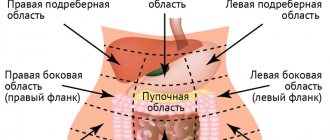The onset of menstruation after a medical abortion depends on numerous factors. It will take a lot of time to fully restore a woman’s weakened body. So you definitely shouldn’t expect your period to arrive immediately after an abortion. This phenomenon greatly affects the reproductive system, leading to a stressful state.
After a medical abortion, menstruation occurs only after the activity of the uterine endometrium has been restored and normalized. This process can last quite a long time, which often makes a woman panic. But is it really worth worrying in such a situation and how to solve the problem? In this article you will find answers to all your questions.
When will your first period start after a medical abortion?
Medical termination of pregnancy becomes a strong hormonal shock. Therefore, it is not surprising that there may be a disruption in the menstrual cycle. The norm would be a delay of up to 2 weeks, more - a deviation requiring consultation with a gynecologist.
What affects the recovery of the cycle after pharmaabortion:
- Interrupt time. The earlier the abortion is performed, the lower the risk of consequences.
- Age. Patients under 35 years of age tolerate the procedure more easily, after which they need to follow the specialist’s recommendations to avoid unpleasant complications.
- General state. If the woman has good immune protection and health, termination of pregnancy is easier to tolerate, but with a weakened immune system and the presence of systemic diseases, severe disruption can be expected.
- Rehabilitation period. The extent to which a woman follows the rules of recovery will greatly influence her condition after pharmaabortion; to restore the cycle, you need to rest more, avoid stress and stress.
- Smoking. Heavy smokers should warn their doctor, because nicotine accumulated over a long period of time can cause excessive bleeding.
- Previous births. If a woman has already given birth, recovery will be much faster and smoother.
- Doctor's level of professionalism. An experienced specialist will do everything correctly, taking into account previous cases in order to avoid consequences.
- Selected drug. Quality and dosage largely affect the recovery period and the development of possible side effects.
Can there be a delay in menstruation after a medical abortion?
A delay after a medical abortion is normal. However, this rule applies only to cases where the period does not exceed 14 days. If menstruation is absent for a month or more, this requires individual consideration with a gynecologist.
Reference! The first day of menstruation is considered to be the day on which active bleeding began. The next months should proceed according to a normal schedule without interruptions. In the case when the cycle was 28 days before the abortion, the first regulation will begin from 28 to 38 days.
Recovery after pharmaabortion can last up to 6 months. Deviations are individual in nature and depend on the factors already described. During the first menstruation, other abnormalities can be observed, such as severe pain and increased blood loss.
As soon as the cycle is restored, we can talk about the complete restoration of the woman’s condition. This indicates normalization of hormonal balance. The main thing is during this period not to expose yourself to repeated stress, which could be the next abortion. Another intervention in a short period significantly increases the risk of consequences and even infertility.
After a medical abortion, an anatomical disruption of the cycle occurs, which can lead to conditions such as uterine fibroids, polycystic ovary syndrome, endometrial hyperplasia, and luteal phase deficiency. The ovarian-menstrual cycle will be disrupted in any case, because forced interruption will always be a powerful stress.
What to do if menstruation does not occur
The use of medications during a pharmacological abortion does not guarantee one hundred percent termination of pregnancy. Many patient reviews prove that in 2% of cases the fertilized egg is not rejected. It persists if there is no period for a long time after termination of pregnancy with the help of medications, and the patient exhibits all its symptoms: toxicosis, dizziness, weakness.
If the interesting situation is confirmed by the doctor, then in this case he recommends terminating the existing pregnancy. In such a situation, the risk of abnormal fetal development increases. The decision in any case remains with the woman.
Medical termination of pregnancy is a consequence of hormonal imbalance, which can cause various female diseases. If the patient complains of deterioration in health, accompanied by an increase in temperature, cramping pain in the lower abdomen, then these symptoms may indicate complications of medical abortion, or more precisely, incomplete rejection of the fertilized egg from the uterine cavity. As a rule, such situations occur with late (over 8 weeks) pharmacological termination of pregnancy.
This pathology can only be diagnosed using ultrasound. Doctors recommend doing it twice: in the first 3 days after an abortion and on days 7–10.
The absence of menstruation for a whole month or more (over 40 days) is also a reason to consult a specialist.
A change in hormonal levels caused by taking medications increases the risk of getting pregnant again after an abortion (actually 1-2 weeks) before the onset of menstruation and is also accompanied by a delay. If symptoms accompany pregnancy, mandatory and repeated pregnancy tests and blood tests for hCG are indicated. Positive results are a signal to visit the gynecologist who performed the procedure.
Often, after a pharmacological abortion, doctors prescribe hormonal contraceptives to women to prevent pregnancy and normalize the menstrual cycle. A new conception within six months after an abortion is undesirable.
Regular visits to the gynecological office will help to avoid possible complications and reduce the likelihood of pathologies of the reproductive organs.
Possible complications after pharmaabortion that affect menstruation
All consequences after pharmaabortion can be divided into short-term, medium-term and long-term. The likelihood of their occurrence increases as pregnancy progresses.
Short-term complications after pharmaabortion (immediately after using the drug):
- Vomiting is observed in almost every second woman, which is influenced by the interval of taking the medication; with a longer break, the risk is lower; vomiting immediately after taking it may require a repeat procedure, so you need to inform your doctor.
- Nausea – occurs with a higher dosage of the drug.
- Allergy – can occur to any substance of the drug; more often a woman experiences a skin rash.
- Diarrhea - appears in every third woman, while antidiarrheal drugs may be ineffective, the disorder goes away very quickly.
- Severe pain is the norm, which is observed in 95% of cases, the pain can be from mild to severe, NSAIDs are used for pain relief - Naproxen, Ibuprofen and analogues.
- Convulsions - occur a few hours after consumption, go away after the abortion is successfully completed, a warm compress is used to reduce the intensity.
Medium-term, occurring within 14-21 days:
- Bleeding normally lasts up to 14 days, the discharge is not profuse, but in some cases it can last more than 30 days and you have to change the pad very often, which is already considered a deviation, the cause may be incomplete abortion and infection.
- Incomplete interruption - accompanied by severe pain, bleeding, general symptoms in the form of high temperature, fever, provoking factors are incorrect dosage, late timing, hormonal disorders.
- Dizziness, headache - if they continue for a long time, this will be a deviation, while the woman may be in very poor condition, there is a decrease in blood pressure, and fainting.
Long term effects after a few months:
- Cycle failure - a delay normally can last up to 2 weeks, some women observe a lack of menstruation for several months, which requires the help of a gynecologist; if the regulation does not occur within 40 days, paroxysmal pain appears and general well-being deteriorates.
- Infectious and inflammatory pathologies are observed when the rules of the rehabilitation period are not followed; exacerbation of existing chronic diseases can also occur.
- Infertility - factors include hormonal imbalances, inflammation of the appendages and uterus; the risk of such a complication increases with a negative Rh factor in a woman and a positive one in a man.
- Psycho-emotional disorders are a purely individual consequence, which can be associated either with hormonal changes or with regret about what has been done; in any case, you need the help of a psychotherapist and gynecologist, and you may need to take medications to prevent depression.
Restoring the cycle after instrumental abortion
This type of abortion can greatly undermine a woman’s health. Restoring menstruation and the body itself takes quite a long time.
The menstrual cycle may resume after a month, but if this does not happen within 40 days, then we can talk about complications. After the operation, it is recommended to carefully monitor your well-being and discharge, and notice them:
- structure;
- color;
- smell and other features.
The appearance of excessively heavy or too scanty periods requires an immediate visit to the gynecologist and a medical examination. A fully restored cycle can be observed only when the woman notices regularity, normal duration and abundance of discharge.
Often, after an abortion, difficulties arise in getting your period on your own; in this case, the doctor prescribes special medications that can bring the cycle back to normal.
Bleeding or heavy periods after an abortion
Active bleeding will be observed for 14 days after a medical abortion. This is due to the fact that the fertilized egg separates, which provokes rupture of blood vessels. It is separated gradually, in parts, so the first menstruation will be heavy and long - up to 10 days. According to the nature of the blood discharge, there will be a little more than usual.
Reference! A deviation will be considered a condition in which the gasket has to be changed after half an hour. Several factors can cause excessive bleeding.
Why is bleeding disturbing after a medicinal termination of pregnancy?
Scanty periods after medical abortion
After a medical abortion, periods should not be scanty - this is a pathology. This phenomenon may indicate several complications at once.
What is the reason for scanty discharge after the procedure:
- Undilated cervix. With such a violation, an accumulation of egg and blood fragments occurs, which can provoke inflammatory processes with serious consequences, accompanied by pain, fever, you should immediately visit your doctor.
- Continuation of pregnancy. This can be judged when toxicosis and cramping pain are present, and in this case it is necessary to conduct an ultrasound examination; surgical abortion may be the solution to the problem.
What else affects the cycle
An important factor influencing the speed of rehabilitation is the period at which the pregnancy was terminated. It is best to resort to such an intervention with a minimum delay, when there is no connection between the fetus and the uterus.
An equally significant condition is the presence of all sorts of complications. Of course, a lot also depends on the qualifications of the doctor and the intricacies of his work. And, in the end, the recovery process is influenced by the means used directly during the procedure.
Tips on how to restore your menstrual cycle
After performing a medical abortion, you must follow all the doctor's recommendations. Until tissue restoration is complete, any deviation can become a factor of complications.
After taking strong medications, a hormonal imbalance occurs that cannot go away without leaving a trace. A few days after the abortion, you need to visit a doctor to evaluate your condition. At the appointment, the specialist must make sure that everything went well. It must be taken into account that such termination of pregnancy is not always effective. Then it may be necessary to repeat it, but using a different method - surgically.
The following recommendations will help the body after severe stress:
- calmness, elimination of stress and emotional turmoil;
- physical rest, refusal of hard physical work and sports;
- refusal of sex for a month or more, depending on the condition;
- observe hygiene measures;
- exclusion of injuries in the abdominal area;
- following a diet, eating well and drinking enough water;
- take medications prescribed by your doctor (not always used);
- refuse self-medication, refrain from taking medications without the approval of a doctor.
After pharmacological abortion, the gynecologist may prescribe antibacterial drugs to prevent infectious complications. Hormonal agents are also used to help normalize the condition and speed up recovery. Vitamins and immunomodulators will be required to generally improve the functioning of the immune system.
The duration of the rehabilitation period and the time for normalization of the menstrual cycle are individual indicators for each woman. The earlier the abortion was performed, the faster the body will return to normal. In case of any deviations from the norm, you should undergo a medical examination in order to identify and eliminate complications in a timely manner.
Heavy periods after an abortion are a common phenomenon, which is caused by external interference in the woman’s reproductive system. Heavy periods are often a consequence of curettage of the endometrium (the inner lining of the uterus), which can be aggravated by damage to the deeper layers, up to the muscular layer of the uterus.
Psychological factor
After termination of pregnancy, the female body needs a recovery period. It can be divided into 2 stages:
- first: the time it takes for a new egg to mature. Usually this is 30 - 35 days, sometimes the first menstruation may begin earlier, at the usual time (but not less than 20 days) or later (maximum - after 45 days);
- second: the period required for complete restoration of the menstrual cycle (from 3 to 6 months).
The time when your period begins for the first time after termination of pregnancy depends on the following factors:
- method of implementation (the body recovers most quickly after a medical abortion, which is considered less dangerous);
- timing (the sooner the better);
- age (a young body recovers faster);
- the presence of pathologies of the reproductive system (diseases may worsen or new ones may develop, which affects the duration and quality of the rehabilitation period);
- anesthesia (some drugs can cause hormonal imbalances);
- the surgeon’s experience (the more carefully and professionally the curettage is performed, the faster the body will return to normal);
- quality of rehabilitation (the recovery period may require a gentle regimen, taking special medications, psychological assistance, etc.).
Restoration of both the entire body and the menstrual cycle after medical abortion is determined by many factors:
- woman's age,
- the presence of chronic diseases (general health),
- the presence of gynecological pathologies,
- hormonal disorders (diseases of the adrenal glands, thyroid gland, etc.),
- the timing of termination of pregnancy (optimally - with a slight delay in menstruation, when the embryo and the uterine lining are not yet securely connected),
- normal, without complications, childbirth before abortion,
- professionalism of the doctor,
- the quality of drugs used for pharmacological abortion.
The use of drugs for medical abortion does not provide an absolute guarantee of termination of pregnancy. In some cases it persists. If toxicosis occurs when menstruation is delayed, this is a sign of a possible continuation of pregnancy. But leaving it is not recommended due to the likely occurrence of congenital anomalies of the fetus.
Menstrual irregularities are one of the common consequences of abortion procedures. Menstruation after an abortion is irregular, ends suddenly or begins with delays.
Overgrowth occurs unevenly. For this reason, menstruation may be delayed after cleaning the uterus.
There are many ways to terminate a pregnancy, and depending on the option chosen, various complications arise. In any case, there are hormonal imbalances that provoke disturbances in ovarian activity, the development of dysfunction, endometriosis, endometrial polyps and many other pathologies. Excessive hormonal imbalance can lead to the formation of tumors.
According to gynecologists, medical termination of pregnancy is the most gentle option. No surgical intervention is performed. It is enough for a woman to take pills.
Pharmaboration is carried out for up to seven weeks. After taking the drug, the egg is rejected and leaves the uterus. For a week and a half after this, bloody and mucous discharge is observed, which many mistakenly call menstruation.
Your period will begin in about 30 days after a medical termination of pregnancy. The beginning of the cycle is considered to be the day you take medication. The normalization process is proceeding quickly. Sometimes there is a one-week delay in menstruation after a medical abortion. Such a violation is considered normal, but only on the condition that the discharge has not become more abundant than before the termination of pregnancy.
If after medical abortion the temperature rises, pain appears in the uterus and there is heavy bleeding with clots, you should immediately seek help from a gynecologist. Such symptoms indicate that there are embryonic remains in the organ.
Vacuum
Vacuum aspiration is considered a relatively safe abortion option. The optimal period for the operation is five weeks. It takes three to five months to fully restore the cycle. The time frame for normalization depends on the state of health of the woman’s body.
The first discharge after a vacuum abortion should be expected on the 28th–35th day from the date of the operation. In this case, scant discharge is considered the norm, since the ovaries have not yet had time to fully recover. If menstruation appears of an unusual color and with an unpleasant odor, regardless of its quantity, you need to be examined by a gynecologist.
Surgical
Abortion surgery has adverse effects on the reproductive system. Often after it, heavy periods and a significant violation of the integrity of the uterine walls are noted. Surgical abortion performed at more than nine weeks is especially dangerous. The uterus is opened with special instruments, which can damage the cervical tissue.
After surgical interruption, a delay in menstruation is possible. Even an experienced doctor is not able to say exactly how long the absence of menstruation will last. If they do not appear within several months, you should definitely be examined by a gynecologist. After curettage, the uterus remains open, and infections can enter it without obstacles.
For some, another negative pregnancy test is a real tragedy. But not all women are happy if the mini-test shows two stripes. Sometimes a decision is made to terminate the pregnancy. It can also be frequently interrupted for medical reasons. The body's reaction to an abortion can be unpredictable. But the fact that it always exists is a fact.
Temporary disturbances also affect reproductive function. There is a disorder in the balance of sex hormones, namely they are responsible for the onset of menstruation.
During an abortion, the inner layer of the uterus is injured, the fertilized egg is suddenly removed and a sharp hormonal change occurs. The menstrual cycle is temporarily disrupted, hypomenorrhea develops, and there are atypical spotting or excessive bleeding.
A sharp hormonal change causes a long recovery of menstruation, sometimes this process takes up to six months.
In other cases, recovery occurs quite quickly. How long this process will take depends on many factors: the type of abortion, the quality of the operation performed, gestational age, etc.
Medical abortion in the early stages is done in several main ways - medications, vacuum and medical instruments. The latter is the classic method and is used most often. True, among other methods, curettage is the most traumatic and dangerous due to its negative consequences.
Medical abortion involves terminating a pregnancy with special hormonal drugs. During vacuum manipulation, a pump is used, with its help the endometrium and fertilized egg are removed.
How to restore a cycle after an abortion? Many, trying to find the answer to this question, turn to alternative medicine and folk remedies. One thing is important - they should not become the main thing in the therapy process. But they can be used as an additional treatment to speed up recovery.
The boron uterus is most often used. A tincture is prepared from the herb. With its help, the menstrual cycle is restored. The medicine also helps relieve inflammation and improves the functioning of the genitourinary system. Many women who terminated their pregnancy and used this method noted that their periods came and recovered fairly quickly. If your period is very late, you need to visit a doctor.
Heavy periods after abortion: how and when?
After an uneventful medical abortion, the first menstruation normally occurs after about a month. Since abortion leads to a sharp hormonal imbalance with suppression of ovarian function, the first menstruation often occurs in the form of scanty discharge. The timing of the onset depends, first of all, on the woman’s “traditional” cycle - for example, if her menstrual cycle was 29 days, then menstruation should be expected after the same period. It is possible that the onset of the first menstruation after an abortion may occur a little earlier or later.
Late onset of menstruation (after 45 days) or complete absence of menstruation (amenorrhea) indicates that manipulation in the uterine cavity was too invasive. The formation of adhesions may be suspected, which poses a threat to the woman’s reproductive function.
Separately, the condition after a medical abortion should be mentioned: in this case, after termination of pregnancy, prolonged uterine bleeding often occurs. This results in significant blood loss and can be life-threatening. Therefore, to avoid serious complications, a woman should be observed by a doctor.
Possible complications
Abortion, like any surgical intervention, entails a risk of complications. A correctly selected method of termination, taking into account the duration of pregnancy and the individual characteristics of the woman, reduces this factor. Conventionally, the consequences can be divided into two groups: early, occurring during or immediately after the procedure, and late, appearing months and even years later.
Early complications include:
- Perforation of the uterus is a rupture of the wall by inserted instruments, requiring immediate surgical intervention. In severe cases, removal of the organ is necessary. There is a risk of damage to the intestines, bladder, and nearby vessels.
- Incomplete abortion is partial removal of the embryo, leading to bleeding, severe pain in the lower abdomen, contributing to the occurrence of endometritis. If the body cannot cope on its own, repeated cleaning is done.
- Penetration of infection leading to inflammation of the pelvic organs. Sometimes blood poisoning occurs - sepsis. The condition poses a threat not only to health, but also to life.
Abortion is a powerful blow to the restructuring processes in the female body caused by preparation for bearing, giving birth and feeding a child. Therefore, termination of pregnancy leads to further complications: adenomyosis, polycystic disease, uterine fibroids, which provoke the appearance of malignant neoplasms. In 50% of cases, early abortions lead to infertility.
Heavy periods - the path to anemia
Heavy periods in women often provoke the development of anemia. The total blood loss during menstruation is about 80 milliliters, which is equivalent to 5.5 tablespoons of blood. That is, normally, blood loss is minimal, but heavy periods are already a significant “leakage” of iron from the body, a path to the development of iron deficiency anemia. At the same time, the level of hemoglobin in the blood decreases, and if the hemoglobin is low, it means that the woman is suffering from anemia. It is always necessary to identify the cause of anemia and be sure to eliminate it. People suffering from anemia have reduced immunity - they suffer from infectious diseases for a long time and often.
Heavy menstruation: protects Totem
The drug Totem from Innotec International (France) contains 5 mg of iron gluconate, 133 μg of manganese gluconate and 70 μg of copper gluconate in 1 ml. This iron-containing drug is available in the form of drinking ampoules and is prescribed 1-3 ampoules per day for a period of 1-3 months for iron deficiency anemia, including after heavy periods after a miscarriage. The dose and duration of taking Totema is determined individually depending on the severity of iron deficiency and the results of laboratory blood tests. The drug Totema is well tolerated. It has undergone numerous studies and has proven itself in practice as a highly effective drug for correcting iron deficiency. A special feature of the drug Totema is also that the copper and manganese contained in the drug Totema contribute to a faster and more effective elimination of iron deficiency anemia.
Related articles:
Heavy periods after miscarriage
Heavy periods after a miscarriage are not uncommon. In some cases, they may be a normal option for 1-2 menstrual cycles. But sometimes heavy periods after a miscarriage are a sign of complications and require treatment.
Heavy periods: reasons
Heavy periods in women can indicate a variety of pathologies and require consultation with a specialist. Heavy periods are a serious problem, which is scientifically called “mennorrhagia.” Heavy periods can cause anemia.
Heavy periods after childbirth
Heavy periods are a very common problem faced by women. Heavy periods often occur after childbirth.
What is heavy periods (menorrhagia)?
Heavy periods (menorrhagia) are established as a diagnosis for prolonged or heavy menstruation. Heavy periods are characterized as menorrhagia with a duration of more than 7 days, and blood loss is 80 ml or more.
Menstruation after medical termination of pregnancy should not differ significantly from normal menstruation in terms of onset and nature. Their onset indicates the restoration of ovarian function and the equalization of hormonal levels. But after taking the pills, there is a possibility of a delay.
What is abortion
Abortion is a medical procedure for artificially ending a pregnancy in the early stages, usually in the first trimester. After 20 weeks, artificial birth methods are used, since the fetus is already almost formed. This type can have dangerous consequences and is carried out strictly according to indications:
- severe pathologies of the fetus, which can lead to disability and death;
- frozen pregnancy due to the death of the fetus in the womb;
- a serious deterioration in a woman’s health due to complications of existing diseases or the acquisition of new ones that require urgent treatment.
A minor caesarean section can also be used to extract the fetus.
When pregnancy occurs, a woman’s body is rebuilt and the hormone progesterone begins to be produced, which is responsible for the successful gestation of the fetus. Artificial termination of pregnancy is a blow to hormonal levels and to the body as a whole. Therefore, it may take some time to restore the previous state.
In addition, depending on the type of abortion, a wound surface that is sensitive to various microbes and bacteria may form in the uterus. Therefore, complications are often possible after manipulation. In this case, it is very important to carry out the procedure only in specialized medical institutions under the supervision of an experienced doctor.
The influence of pharmabort on the menstrual cycle and the woman’s body
Medical abortion is considered the most gentle method. During this procedure, drugs are used that reduce the amount of progesterone in the body and provoke increased contraction of the smooth muscles of the uterus.
After conception, the body adjusts to bearing a child, and hormonal changes occur. Taking pills for miscarriage disrupts the coordinated functioning of the adrenal glands, pituitary gland, ovaries, hypothalamus, and thyroid gland. A sharp forced hormonal change can:
- lead to diseases that are caused by metabolic disorders;
- increase the likelihood of developing inflammatory diseases;
- cause the development of endometriosis, fibroids, fibroids.
But not all patients experience complications. More than half of the women who have undergone pharmaabortion have their periods after the required 25-35 days. The cycle is not disrupted, hormonal problems do not arise.
Contraindications to pharmacological abortion
Medical termination of pregnancy is considered a gentle method, despite this there are a number of contraindications that exclude the use of this method of termination of pregnancy. These include:
- Abortion in the late stages of more than 8 weeks is dangerous due to incomplete rejection of the fertilized egg.
- Age restrictions: before the age of 18, medical termination of pregnancy is undesirable, since hormonal imbalance can harm a young, not fully formed body.
- Women over 35 who smoke are at risk of developing cardiovascular pathologies.
- Ectopic pregnancy. Medicines that cause rejection of the fertilized egg can cause the fallopian tubes to contract and cause them to rupture, the consequences of which (excessive internal bleeding) can be fatal.
- Hormonal imbalance caused by taking birth control pills or having an intrauterine device. You must inform your doctor about these factors.
- Infections and inflammations of the female genital organs (fibroma, fibroids, endometriosis, malignant tumors, uterine scar).
- Presence of chronic diseases:
- circulatory system (anemia, hemophilia);
- adrenal insufficiency accompanied by epilepsy;
- liver and kidney pathologies;
- diseases of the gastrointestinal tract (colitis, gastritis, pancreatitis);
- respiratory problems;
- diseases of the heart and blood vessels;
- hypertension;
- obesity;
- diabetes;
- extragenital pathology of severe form.
- Individual intolerance to drugs.
Abortion using medications can only be prescribed by a gynecologist. It is carried out in a medical institution so that in case of complications the patient can receive timely assistance from highly qualified specialists.
Take care of your health! Use contraception so as not to expose your body to the risk of developing pathologies.
Menstruation after medical abortion
The appearance of menstruation after interruption of a pregnancy with medication indicates the beginning of the restoration of the hormonal system. In terms of pain and intensity, menstruation should not differ from a woman’s usual critical days. But during the first few months they may be more abundant.
There should not be long delays. It is allowed to lengthen the first cycle to 35-45 days. If a woman is prescribed oral contraceptives after a tablet interruption, then menstrual-like discharge will begin in a timely manner.
When do periods begin after medical termination of pregnancy?
In patients who have had a pill abortion, menstruation begins after 25-35 days. The duration of the cycle before and after abortion with pills should not change. Delays of up to 2 weeks are normal. They are possible due to external interference in the functioning of the hormonal system.
If minor delays occur, there is no need to panic. The cycle normalizes in 2-3 months, sometimes recovery is delayed for six months.
Delayed menstruation after medical termination of pregnancy
The absence of menstruation 35 days after a miscarriage caused by taking pills is a reason to assess the state of reproductive health. The doctor must conduct a gynecological examination and prescribe an ultrasound to assess the condition of the appendages and the internal cavity of the uterus. It is important to ensure that no health problems arise.
If the patient’s cycle length before conception was 35 days, then it is recommended to wait another 7-10 days for the first menstruation to begin after a medical abortion. A delay of up to 2 weeks is considered normal.
If there are no periods, you need to make sure that there is no fetus in the uterus. The ability to conceive is restored 2-3 weeks after termination of pregnancy with pills. Women who do not use contraception with their partner may become pregnant again.
Features of menstruation during various types of abortion
Reviews indicate that such abortions are painful.
Curettage violates the integrity of the uterus (its walls bleed) and contributes to vascular damage, so bleeding is an invariable companion to such a serious intervention. The day of curettage is the first day of a new cycle. This is where the report should begin.
After a surgical abortion, menstruation may occur on days 30–35. The duration of the cycle will gradually decrease and will soon return to normal.
At the very beginning after the operation, the woman will suffer from bleeding. Do not be alarmed if the first menstruation after curettage occurs with some deviations. It may be scanty discharge or, conversely, too abundant. All this is the cause of hormonal imbalance. You can restore hormonal levels with birth control pills, but you can only take them on the advice of a specialist, because such medication provokes the development of serious complications.
The nature of menstruation after an abortion can tell about a woman’s health and the success of termination of pregnancy. Therefore, it is necessary to carefully monitor how menstruation occurs at this time.
If termination of pregnancy is carried out at an early stage, then, as a rule, there should be no consequences. The fertilized egg is not yet fully attached to the uterine cavity, and it is quite easy to remove it using one of the above methods of artificial termination. If the pregnancy is terminated at a late stage, then some negative consequences are possible.
Up to 60% of medical abortions do not lead to significant interruptions in the cycle. If its duration is slightly longer than usual, it is considered within normal limits. It is quite acceptable for your period to be late by about 10 days.
In most cases, periods after a medical abortion retain their character. Sometimes the volume of blood loss may increase, and pain may appear or intensify.
An abortion can be performed in the following ways:
- with the help of medications;
- vacuum method;
- surgically.
If termination of pregnancy is required, it is recommended to do it as early as possible. The duration of the body’s recovery depends on the method of intervention. It should be understood that negative consequences can occur regardless of the method of abortion. This may be a temporary disruption of the cycle (this problem is described in detail in the Causes of Violations section) or serious health consequences with impaired reproductive function (see the Complications after Abortion section).
The periods themselves will begin only after reproductive function has been restored, that is, after 28 - 45 days (counting starts from the first day of cleansing). The indicated periods are the extreme limits of the norm; on average, the female body requires 30–35 days for primary recovery, that is, for the maturation of a new egg, ovulation and its removal from the body (until the first menstruation after an abortion).
When there is a choice, it is worth giving preference to less traumatic methods of interruption. Abortion is performed up to 20-22 weeks (after this period the operation will be called “artificial birth”). If the patient wishes, it is recommended to have an abortion no later than 12 weeks; in the future, the operation is performed only for medical reasons.
The earlier it is done, the fewer the risks; in the early stages, the woman herself and the doctor have the opportunity to choose the method of termination. But in any case, the possibility of complications remains, and the first menstruation may begin late. Let's consider how methods of abortion are interconnected and the speed of restoration of the menstrual cycle.
Drug-induced abortion is considered the most gentle way to terminate a pregnancy. This opinion is based on the following facts:
- early date (no later than the 7th week);
- medications cause fetal rejection, which means there is no need to further injure the uterus and endometrium;
- the fetus comes out naturally without additional interventions.
Any of these symptoms is a serious reason to contact a gynecologist. If your period does not start on time after pharmabortion, you should also visit a doctor. The main risk of medical abortion is the ineffectiveness of the procedure. That is, bleeding is not a guarantee that everything went well and the fetus was completely rejected.
How long does your period last after medical termination of pregnancy? The first menstruation may begin with a slight delay (but no more than 2 weeks). If there is a longer delay in menstruation or, after termination of pregnancy, menstruation comes before the 20th day, then you should immediately contact a specialized specialist.
The vacuum abortion method is also considered less dangerous for the female body. The operation is performed up to 7 weeks and is done using a vacuum, which pumps the fertilized egg out of the uterus. After a mini-abortion, bleeding is observed for 5 to 10 days, which should pass painlessly.
When does menstruation begin after an abortion performed using the instrumental method? The standard period is 30–35 days from the date of the operation. Menstruation may come within normal periods for the cycle (for example, after 28 days) or may be delayed slightly (but no more than 10 days). Menstruation after a vacuum abortion usually does not differ from normal in color, consistency and duration.
Why no periods after medical termination of pregnancy?
If menstruation does not begin within 35 days from the release of the fertilized egg, then it is necessary to check the functioning of the body. Lack of menstruation can be caused by:
- hormonal imbalance;
- injury to the inner layer of the uterus as a result of intense contractions and expulsion of the fetus;
- inflammatory process.
It is important to establish the cause of the long delay and select adequate therapy. With timely initiation of treatment, you can prevent the deterioration of the condition and the development of infertility in the future.
Delay as a cause of incomplete abortion
Delayed menstruation after abortion
Although the symptoms are similar to signs of hormonal imbalance, the causes may be completely different. Let's consider this issue in more detail.
Abundance
Heavy periods after an abortion can be the result of an inflammatory process, poor-quality cleaning, or trauma to the organs of the reproductive system. It is not normal if menstruation lasts more than 10 days, and the volume of discharge is so large that a woman is forced to change a pad or tampon more often than once every 3 hours.
Scarcity
Poor discharge is also a problem. Scanty periods may indicate spasm of the appendages, disruption of their function, partial retention of blood in the uterus as a result of its atony or other reasons. If there is little blood during menstruation for 3 months, then this is a serious reason to think about your health status; in this case, consultation with a gynecologist is necessary.
Delay
A delay in menstruation after an abortion for more than 45 days indicates pathological processes. It can also be caused by various reasons:
- absence of menstruation is observed if adhesions and/or scars appear;
- the uterus was damaged or the muscle tone was insufficient (if there are no periods after an abortion, they can accumulate inside the uterus, resulting in infections and serious complications, including peritonitis);
- if the deep layers of the endometrium are damaged, the reproductive function is preserved, but there is no menstruation. This is explained by the fact that only the superficial layer of this tissue can be restored, and menstruation is the result of its rejection;
- re-pregnancy: if a woman does not maintain sexual rest for a month (this is recommended after an abortion) and sex was unprotected, then the risk of re-pregnancy increases many times over.
Rehabilitation
To quickly restore reproductive health, gynecologists recommend:
- limit physical activity for several weeks;
- avoid visiting baths, saunas, and taking hot baths;
- reduce time spent in open sun;
- avoid sexual contact for about 2 weeks from the date of termination.
For successful rehabilitation, you should stop drinking alcohol, smoking, and review your diet. During the rehabilitation period, special attention is given to measures aimed at preventing the development of infectious and inflammatory diseases and colds.











